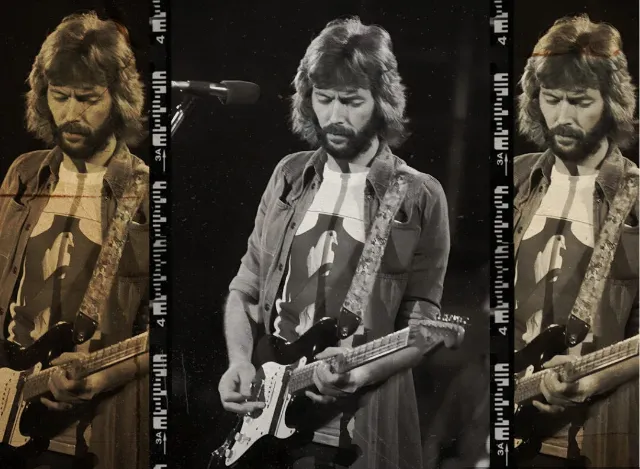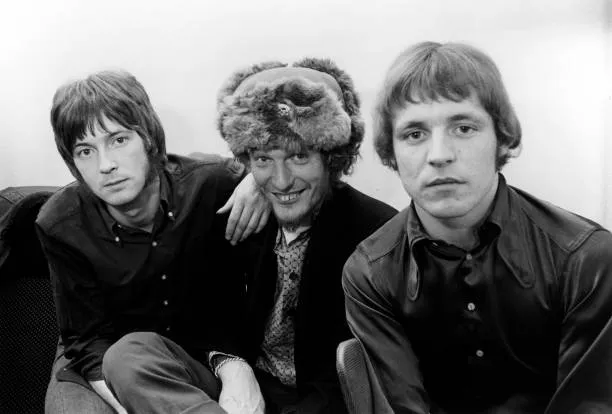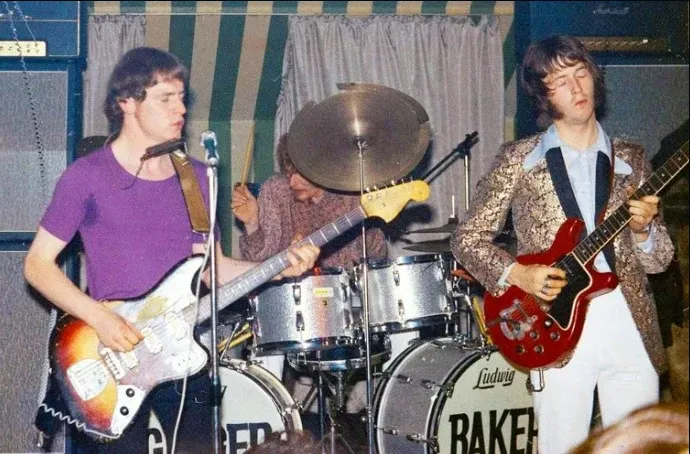Eric Clapton, often hailed as one of the greatest guitarists and blues interpreters of all time, has a remarkable talent for breathing new life into classic songs.
One such example is Clapton's rendition of "Alberta," featured on his acclaimed 1992 "Unplugged" album.
This track is Clapton’s version of the famous 12-bar blues tune "Corrine, Corrina," which dates back to the late 1920s and has long been credited to the artist Armenter “Bo Carter” Chatmon.
The Origins of "Corrine, Corrina"

To appreciate Clapton's rendition of "Alberta," it's essential to understand the history behind the original song, "Corrine, Corrina."
Armenter “Bo Carter” Chatmon, a prominent blues musician of the 1920s and 1930s, is widely credited with popularizing this song.
Born in Mississippi, Chatmon was a member of the Mississippi Sheiks, a group that significantly influenced the development of blues and country music.
"Corrine, Corrina" has been interpreted by multiple artists over the years, each contributing their unique touch to the song.
Notable versions include those by Big Joe Turner, Bob Wills, and Mississippi John Hurt.
The song’s enduring appeal lies in its timeless melody and its lyrical themes of love, longing, and heartache. It has long been a favorite among blues musicians, serving as a staple in the genre’s repertoire.
Eric Clapton’s Connection to the Blues

Eric Clapton’s deep-rooted connection to the blues is no secret. Known as “Slowhand,” Clapton’s journey with the blues began in his youth and has remained a driving force throughout his career.
His fascination with American blues legends like Robert Johnson, Muddy Waters, and Howlin' Wolf shaped his musical direction and influenced much of his work.
Clapton’s Version of "Alberta"
Clapton’s decision to cover "Alberta" for his "Unplugged" album was a testament to his appreciation for the song’s rich history and his desire to introduce it to a contemporary audience.
The "Unplugged" album, recorded live at Bray Studios in London, is a milestone in Clapton’s career, showcasing his mastery of acoustic blues and his ability to reinterpret classic songs with fresh perspectives.
The Unplugged Session: A Milestone
The "Unplugged" session in 1992 marked a departure from Clapton’s electrified blues-rock style, presenting a more intimate and stripped-down version of his music.
The album featured acoustic renditions of some of his biggest hits, alongside blues standards like "Alberta."
The "Unplugged" album was a commercial and critical success, earning Clapton six Grammy Awards, including Album of the Year.
The album's success also helped to rekindle interest in acoustic blues music and brought classic blues songs to a new generation of listeners.
Musical Elements of "Alberta"
Clapton’s version of "Alberta" retains the essence of the original "Corrine, Corrina" while infusing it with his unique style.
The acoustic arrangement highlights Clapton’s virtuosic guitar playing and soulful voice, creating a rendition that is both respectful of its roots and distinctly modern.
Instrumentation and Arrangement
In Clapton’s "Alberta," the acoustic guitar takes center stage, with Clapton delivering intricate fingerpicking patterns and emotive bends that enhance the song's bluesy feel.
Accompanied by a subtle rhythm section and harmonica, the arrangement is minimalistic yet powerful, allowing the song’s heartfelt lyrics and Clapton’s expressive performance to shine.
Lyrical Themes and Interpretation
The lyrics of "Alberta" echo the themes of love and longing found in "Corrine, Corrina." Clapton’s delivery is raw and emotional, capturing the essence of blues storytelling.
His interpretation brings a sense of immediacy to the song, making it relatable to contemporary audiences while preserving its traditional roots.
Listeners often describe feeling a deep emotional connection to Clapton’s performance of "Alberta."
The simplicity of the arrangement, combined with Clapton’s heartfelt expression, creates a sense of intimacy that resonates with fans.
This emotional resonance is a hallmark of Clapton’s music, showcasing his ability to convey profound feelings through his artistry.
Reception and Legacy

Clapton’s "Alberta" was warmly received by both critics and fans. It quickly became a highlight of the "Unplugged" album, showcasing Clapton’s ability to bridge the gap between traditional blues and modern music.
The song’s inclusion in the album contributed to its widespread acclaim and enduring popularity.
The "Unplugged" album reached number one on the Billboard 200 chart and was certified Diamond by the RIAA, reflecting its massive commercial success.
"Alberta," along with other tracks on the album, played a significant role in its appeal, attracting listeners with its blend of authenticity and modernity.
Influencing New Generations
By bringing "Alberta" to a wider audience, Clapton has played a crucial role in preserving and promoting the blues tradition.
Young musicians and fans discovering Clapton’s "Unplugged" album are often inspired to explore the roots of blues music, leading them to discover artists like Bo Carter and other early blues pioneers.
Artists such as John Mayer and Gary Clark Jr. have cited Clapton as a major influence on their music, particularly his acoustic work.
Clapton’s rendition of "Alberta" serves as a bridge that connects new generations to the rich history of blues music, ensuring that its legacy continues to thrive.
Live Performances of "Alberta"
Clapton has included "Alberta" in several of his live performances, allowing audiences to experience the song’s magic firsthand.
His live renditions capture the spontaneity and emotive power of the blues, reinforcing the timeless appeal of "Alberta."
Fans recount memorable performances of "Alberta" during Clapton’s concerts, where his acoustic set often provides a refreshing contrast to his electric blues-rock numbers.
These performances underscore Clapton’s versatility as a musician and his deep connection to the blues tradition.
A Testament to Timeless Blues
Eric Clapton’s rendition of "Alberta" is more than just a cover; it is a heartfelt homage to the blues tradition and a celebration of the genre’s enduring relevance.
By breathing new life into "Corrine, Corrina," Clapton has created a version that honors its roots while appealing to contemporary listeners.
As we reflect on the journey of "Alberta," from its origins with Bo Carter to its reinterpretation by Clapton, we see the power of music to transcend time and connect generations.
Clapton’s "Alberta" is a testament to the timelessness of the blues and its capacity to evoke profound emotions through simple yet powerful storytelling.
For fans of Eric Clapton and blues enthusiasts alike, "Alberta" is a shining example of Clapton’s artistry and his dedication to preserving and promoting the blues. It serves as a reminder of the genre’s rich history and its continued impact on modern music.



